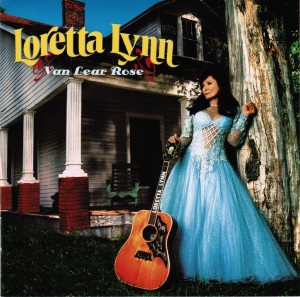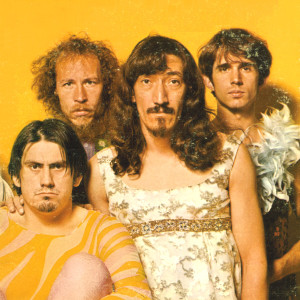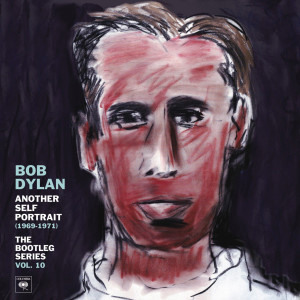Link to an interview of Noam Chomsky by Emanuel Stoakes:
Author: Syd Fablo
Chris Gilbert – “Why Socialism?” Revisited
Link to an article by Chris Gilbert:
“‘Why Socialism?’ Revisited: Reflections Inspired by Albert Einstein”
A very interesting essay, in line with late-period writings by Walter Benjamin, though what goes unsaid is that much of Einstein‘s views on this point were probably drawn from Thorstein Veblen. Who would have thought sci-fi movies would be so relevant?
Bonus links: “Inside Einstein’s Mind” and “You Only Live Twice”
Loretta Lynn – Van Lear Rose
Loretta Lynn – Van Lear Rose Interscope B0002513-02 (2004)
Maybe much of the music industry had forgotten about Loretta Lynn by 2004, and younger urban audiences may have never really heard of her in the first place. But she was suddenly back in the charts with Van Lear Rose. And this was a convincing new offering, earning as much (or more) critical praise as it garnered in commercial success. Lynn wrote or co-wrote everything here, and it is the songwriting that makes the album what it is.
“Miss Being Mrs.” is a song she started co-writing with a friend back in the early 1980s, an idea that started with the title phrase, finished for purposes of the album. It is interesting that the song had origins so long ago, because Lynn was widowed and it seems like a very personal song for her, even if its origins suggest otherwise. It is the most spare performance on the album. It is just Lynn singing with acoustic guitar.
The story behind “Portland, Oregon” is described in her memoir Still Woman Enough. Lynn never drank much. But she was in a motel in Portland with Cal Smith (she admits to having a crush on him in her younger days) and various band members. Not knowing what to order, Smith suggests a “Sloe Gin Fizz.” As she gets a little drunk, her and Cal goof around to try to stir up controversy — Lynn’s husband Doolittle was a notoriously jealous man always suspicious of her cheating on him (even though it was him who regularly cheated on her). As she became pretty drunk Smith told her the bar was closing. Undeterred, she asks the bartender herself only to find out that the bar wasn’t really closed yet. So she orders a pitcher of sloe gin fizz to go. When she got back to her room, she started writing the song.
“High on a Mountain Top” has a bluegrass feel, with a clunky beat, chanted vocal backing, and rough-hewn violin. Lynn’s lyrics refer to her upbringing in the coal mining community of Butcher Holler, Kentucky. The title song “Van Lear Rose” is a tale about her family, specifically her mother — Lynn nominated her mother as her greatest teacher and her mother then received an award from the Carter White House in the late 1970s. “Story of My Life” is of course another autobiographical song, with more of a sense of humor than “Coal Miner’s Daughter” and with a longer time frame to draw from. “Little Red Shoes” is another autobiographical tale, delivered as sort of a spoken monologue, but it is less coherent than the way Lynn tells the story in one of her memoirs.
This “comeback” album (Lynn saw 2000’s Still Country! as her real comeback) was her best-selling since the late 1960s. Trendy indie-rock producer Jack White is on board. He is quoted as being a big Lynn fan, and he sought her out to do this project. In many ways, White is the album’s biggest liability — even though his very presence is what gave the album so much exposure and its commercial success. He over-uses heavy reverb and sustain on electric guitar (“Little Red Shoes”). If this is supposed to be a “crossover” effort, at times it seems like little more is done than put boilerplate (circa 2004) indie rock guitar behind Lynn. Though, in fairness, White also shakes Lynn loose from complacency and recording more of the same. He pairs her with his own hand-picked band, which Lynn nicknamed the “Do Whaters” because they did whatever was needed.
Lynn worked from within the Nashville system most of her career. As a result, she churned out albums at a breakneck pace. They were as a rule full of filler. Against that historical precedent, Van Lear Rose holds up pretty well. Lynn wasn’t know as primarily an album-focused recording artist. Even the best here doesn’t quite stack up with the finest recordings of her career (see Honky Tonk Girl: The Loretta Lynn Collection for that). Still, this comes close enough to belong in the conversation with her very best recorded work.
Public Enemy – Live From Metropolis Studios
Public Enemy – Live From Metropolis Studios Universal 00602547228819 (2015)
If Public Enemy seemed to shun major labels in their later years, then Live From Metropolis Studios is an about-face. Still, it’s a pretty strong album, recorded live in a studio before an audience of about 125, and is helped by a “greatest hits live” format (like, ahem, Fight the Power! Greatest Hits Live!; there is nothing from their recent studio album Man Plans God Laughs) and hi-fidelity made possible by the “studio” setting. If live hip-hop usually only makes sense in person, with the energy of the interaction between the performers and the crowd fueling the experience, then live hip-hop recordings are often simply weak approximations of studio counterparts. Of course, DJ scratching can take on a bigger, or at least different, role in a live setting. But the real promise of recordings of live hip-hop is the use of a live backing band. With Public Enemy, that means The baNNed, featuring Khari Wynn on guitar, Davy DMX on bass, and T-Bone Motta on drums. Those guys lend some pretty tough punk/metal shadings to renditions of classics like “Black Steel in the Hour [of Chaos]” (which is performed sort of as a medley with snippets of songs like “MKLVFKWR” and “Do You Wanna Go Our Way???” worked in), “Shut Em Down” and “Harder Than You Think.”
Recorded in London in 2014, only part of the PE group is present. Professor Griff is absent, and only Pop Diesel and James Bomb from S1Ws made the trip. Although Terminator X reappeared on Man Plans God Laughs (his first recordings with the group in over 15 years), only DJ Lord appears here.
London is a special place for PE. In the late 1980s they toured there, before they really broke to wide audiences, and snippets from London concerts were prominently featured on their classic It Takes a Nation of Millions to Hold Us Back.
This album is a nice opportunity for old PW fans to catch up with the band, and hear a select few of their newer tunes of the last decade or so that they may have missed, and maybe there’s an off chance that younger listeners might tune in to one of hip-hop’s greatest acts for the first time.
The Mothers of Invention – We’re Only In It For the Money
The Mothers of Invention – We’re Only In It For the Money Verve V6 5045X (1968)
This is hands-down the best album to come from The Mothers of Invention (it is often inexplicably filed under bandmember Frank Zappa‘s name in many record stores). It’s the one time their goofy, satirical sense of humor materialized on record in a way that both stayed true to its nonsensical sentiments and coalesced into a consistently moving body of songs.
In a way, this is the group’s Triumph des Willens [Triumph of the Will]. If that seems an odd comparison, know that the cynical attitude here is kind of what allows the band to forge on. The title may be “We’re Only In It For the Money” and that is supposed to be a joke, but aren’t they in it for the money in the end? The way the group skewers Yippie/Hippie culture is kind of an attack on what was the greatest threat to concentrated elite control of society since the labor movement and the associated threat of the collapse of capitalism from the Bolshevik Revolution through the Great Depression. Anyway, just like Triumph of the Will, this is still a great album because of the total conviction of what it is about, and the excellent execution.
Brendan McQuade – Against Community Policing
Link to an article by Brendan McQuade:
Svetlana Gouzenko – Before Igor: My Memories of a Soviet Youth
“For the October Revolution our class produced a small play in which a group of young Pioneers expelled the heroes of Russian fairy tales as ‘non-Soviet elements’. The curtain opened on this drab little group of Pioneers. Their appearance brought no response from the audience. Then the group leader . . . got up and made an introductory speech. She explained that the old fairy tales, about princes and princesses, exploiters of simple folk, were unfit for Soviet children. As for fairies and Father Frost [~Father Christmas/Santa Claus], they were simply myths created to fool children.
“After her speech the colorful crowd of ‘non-Soviet elements’ appeared on stage. A sigh of delight passed through the hall and grew into a wave of applause . . . .
“The Trial began. Cinderella was dragged before the judges and accused of betraying the working class . . . . Next came Father Frost, who was accused of climbing down chimneys to spy on people. One by one we were condemned to exile. The only exception was Ivan the Fool, because he belonged to the common people and so was no traitor of his class. He was renamed Ivan the Cunning.”
Svetlana Gouzenko, Before Igor: My Memories of a Soviet Youth (1961)
Gouzenko was the wife of Soviet defector/traitor Igor Sergeyevich Gouzenko, a key figure in the start of the “cold war”. The passage quoted above sneers at the Pioneers, and sympathizes with betrayers of the working class, but wasn’t that play great? Children should put it on again.
William I. Robinson – Global Capitalist Crisis and the North American Free Trade Agreement
James H. Nolt – The Ideological Bedrock of Economics
Link to an article by James H. Nolt:
Bob Dylan – The Bootleg Series Vol. 10: Another Self Portrait
Bob Dylan – The Bootleg Series Vol. 10: Another Self Portrait (1969-1971) Columbia 88883 73488 2 (2013)
Drawing primarily from the years that produced Self Portrait, Dylan, and New Morning, but also touching briefly on The Basement Tapes, Nashville Skyline, and the new material from Bob Dylan’s Greatest Hits Vol. II, this tenth edition of the “Bootleg Series” focuses on a crucial turning point in Bob Dylan’s career, when for the first time he was drawing criticism and seemed to be making missteps. But set that all aside. The first disc of this collection is mostly rather excellent, and stands all on its own. From this evidence, Dylan had not run out of ideas. He had plenty. He was also capable of touching, heartfelt performances. But somebody, Dylan, his managers, the label…one of them, or bunches of them, seem to have conspired to present Dylan in the worst possible light back at the time of the original releases. This collection give everyone a second bite of the apple, so-to-speak. It finds Dylan doing something akin to the folk that he made in the early/mid 1960s. But by the dawn of the 1970s, commercial interests were looking west toward the burgeoning singer-songwriter movement that utilized more ornate studio embellishments than the kind of spare, acoustic folk Dylan was still frequently recording. This gives the impression that it was (stupidly, in hindsight) decided that Dylan needed to do something else. So he did. Dylan’s albums from the era ended up flawed, even dreadful at times. The songs on the first disc here are demo versions, unreleased outtakes, alternate versions, and a few versions that appear to be the released versions stripped of some or all original overdubs (akin, somewhat, to Willie Nelson‘s Naked Willie). The latter discs add more of the same, plus some live recordings. The deluxe edition includes a full disc of “The Complete, Historic ‘Isle of Wight’ Concert, 1969.” In truth the extra material is of marginal interest. The best material is on disc one; a single disc edition would actually be the one to get, if it existed. But all those details aside, this collection is great because it shows how even (or maybe especially) a huge star like Dylan faced pressure to do something “different” even when it was clear that doing more of the same is what would have worked best. The evidence is right here, and with hindsight thankfully the best of his efforts of the era are now available for all to hear.





